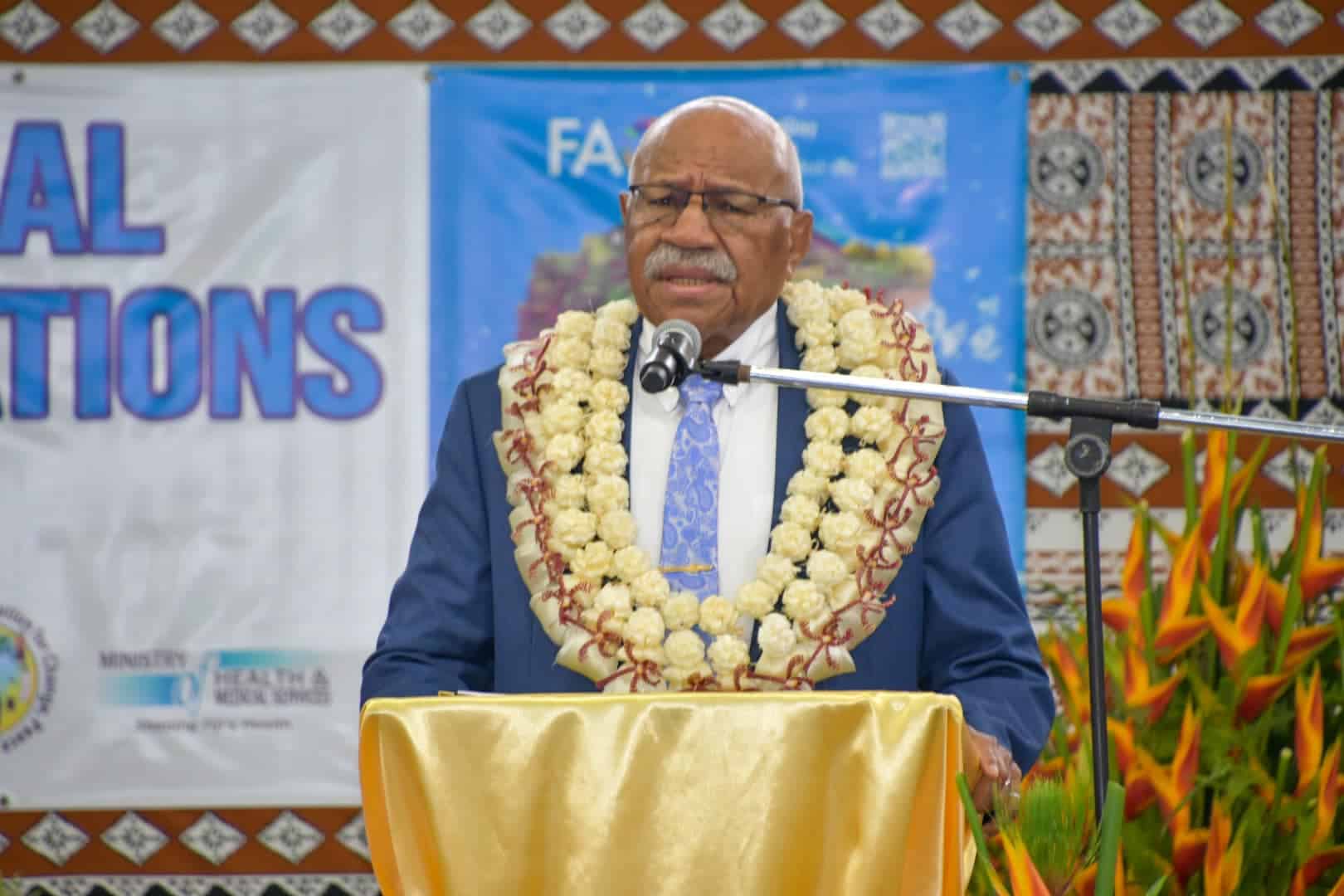Fiji’s Prime Minister Sitiveni Rabuka believes population growth, climate change and dietary choices are factors that drive food insecurity.
And the Prime Minister has urged the Ministry of Agriculture and other relevant agencies to “reintroduce a nutritious and healthy food culture”.
“What is food?” PM Rabuka asked a large crowd that gathered for the launching of World Food Day and National Agriculture Show at Vodafone Arena in Suva this week.
“It used to be cassava, taro, yams, banana, fish, freshwater prawns, [and] shellfish. If it comes in a tin or a can, that’s not food,” PM Rabuka stated.
“What we eat is our medicine. What we drink is our medicine, instead of the pills and medicine that we get from the chemist. It’s in the food, it’s in the soil that we use to grow our food. It was there from the beginning of the universe.
The Prime Minister also emphasised the need to make our food resilient to climate change by exploring drought resistant crops and sustainable water practices.
“Addressing ‘leaving no one behind’ means food affordability, distribution, and nutrition education, especially among vulnerable populations in the remote areas.
“Approximately 2.5 billion people are food insecure. That is a stark reminder that the fight against hunger is a global endeavour and Fiji must play its part in solving that.
The Prime Minister noted that the National Agriculture Show was an annual feature in the past and he hopes it will be a regular event “where we can all come and show what God has blessed us with from our own gardens and farms”.
“The World Food Day and National Agriculture Show are vital events because they play an important role towards food security, income generation, employment, rural development and economic diversification,” Minister for Agriculture and Waterways, Vatimi Raiwalui, reiterated.
“In the current financial year, we’ve seen our government’s commitment to the agricultural sector with an increase of our annual budget support of about 48% compared to the last financial year,” he said.
Raiwalui said the Ministry of Agriculture and Waterways received a total of F$95.2 million in its budget, which is an increase of F$37.3 million. “It has been quite a long time since the Ministry of Agriculture received such a huge budget,” he said.
“The Food and Agriculture Organization of the United Nations (FAO) and the European Union (EU) have played a vital role in motivating the agriculture sector in Fiji over the last few years, and in particular, for farmers, staff and grassroots communities as well as the youth that have benefited from their programs, projects and training,” the Minister said.

“Nutrition is one of FAO’s core priorities in the region. As you know, Non-Communicable Diseases are quite high in Fiji,” Joann Young, Assistant Representative for FAO Fiji, told Islands Business.
Young said one-in-four deaths is NCD-related in Fiji.
“We’re addressing this issue by encouraging schools to have their own school gardens,” she said.
“We’re helping one of the schools [in Fiji]—Navesau Adventist High School—to put in irrigation [pipes], and it is to address the slow-onset of drought,” she added. According to FAO’s official website, the school has 300 students of various ethnicities, including i-Taukei (Fijian), Papua New Guinea, Vanuatu, Nauru, and Kiribati.
“The students grow a variety of vegetables like tomatoes, cucumbers, etc. So this is one avenue that we’re trying to expand across the country as we see that schools are a great platform to encourage healthy and nutritious eating, especially in boarding schools. “We hope that they can take with them the experience and the lessons learned when they return to their homes and villages,” said Young.
